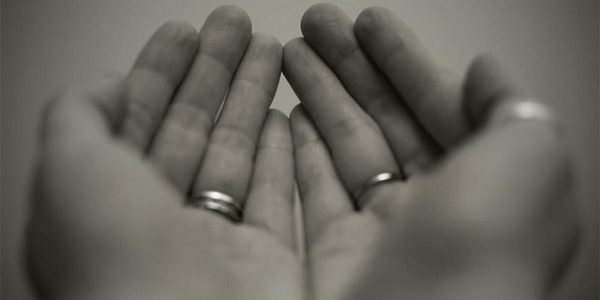
For several years, Diana Trautwein has been a wise aunt to many of us in the progressive contemplative Christian blogger community. So I was tremendously honored when she agreed to review my book How Jesus Saves The World From Us. She offered some feedback that I wanted to ponder on my chapter “Empty Not Clean,” because I think it’s critically important to understand in what sense we are called to be empty.
Specifically, Diana wrote the following very gentle articulation of our differences about the conclusion of my chapter:
We come to different conclusions, he and I. I take issue with the “more of Jesus, less of me” mentality, preferring instead to say, “more of Jesus, MORE of me.” I say this because I deeply believe that God does not desire us to so much become Jesus but to resemble him, in our own unique and irreplaceable selfhood… Hopefully, as we release the lists, as we say good-bye to the do’s and don’ts and the ‘stay clean’ entanglements, we will, indeed, even more closely resemble our crucified, risen Lord. But… we will still be ourselves.
I’m very much in agreement with what Diana has written here. So I was curious to find what she was responding to in my chapter, and then I found the last section header: Empty of Self, Full of Christ. It’s a pious evangelical phrase that I picked out in order to go with the Bible verse I was expounding, Galatians 2:20, where Paul says, “I have been crucified with Christ, and it is no longer I who live but Christ who lives within me.”
I believe there is a great mystery in this verse that needs Diana’s pushback to my oversimplified section header in order to be understood correctly. Is Jesus’ goal to make generic clones of himself? Is there one completely abstract model for humanity to which we’re supposed to conform as Christians? Is the church supposed to be a giant uniform identity manufacturing machine that makes people who all smile the same way, make the same jokes, and use the same catchphrases? If that were the case, then why would Paul say in 1 Corinthians 12 that each of us is given different gifts in order to become indispensable and unique parts of the body of Christ?
We become part of Christ, but we do not become generic Christ-clones. When Paul says Christ “lives within me,” I think that means that we are drawing upon Christ as the source of our life, not that our personal individuality has been blotted out. We do not need to be emptied of our selfhood in terms of our uniqueness; we need to be emptied of the idols that we clutch too tightly to be available to Christ’s love.
Diana says elsewhere that when I use the word “empty,” she would use the word “open.” Exactly. To be empty of idols simply means to live with open hands. The self-emptying of which Paul writes in Philippians 2 means letting go of agendas, addictions, and anxieties. It doesn’t mean self-erasure.
Too many Christians, women in particular, are emptied of their identity in a toxic way. They become defined by all the other people they support. They are spouses and parents of the “important voices” and “promising leaders” whose identities matter.
Philippians 2 can be misinterpreted to promote a very toxic codependency. Verses 3-4 say, “Do nothing from selfish ambition or conceit, but in humility regard others as better than yourselves. Let each of you look not to your own interests, but to the interests of others.” I need to be confronted by these verses every day because I’m a very selfish, prideful person.
But there are Christians who are the opposite of me, whose problem is that they always focus on “the interests of others” so that they never develop their own talents and offer the leadership they have been gifted with. It is not only for their own good that they cannot be allowed to erase themselves. It is for the benefit of the body of Christ that their unique gifts need to be honored and affirmed.
So while it’s true that all of us need to be emptied of our agendas, anxieties, and addictions, Jesus can’t be Jesus in the beautifully unique way he is inside of each of us if our identity has been erased. Thanks Diana for the clarification!















